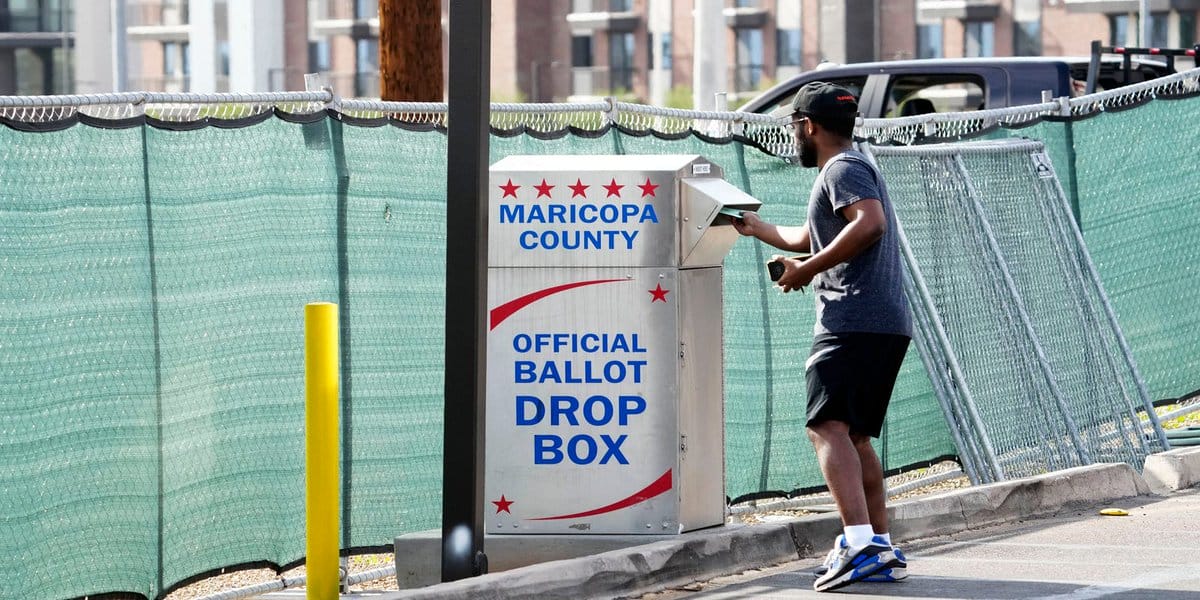XTwitter
Mary Jo Pitzl
Arizona Republic
From creating rules about ballot drop boxes to mapping out a way to automatically restore voting rights for felons, a governor’s task force has started to refine nearly two dozen proposals to change Arizona’s election process.
The Bipartisan Elections Task Force decided to move ahead with 20 proposed election-related changes. Most of the proposals received unanimous approval from the 18-member group; only two were rejected. The majority of them aim to expand voting access or to tighten election security.
The task force’s recommendations could lead to proposed legislation in 2024, thus the emphasis on the bipartisan nature of the task force members.
Some of the early ideas would cost money, such as $6 million to pay for upgrades to election equipment and to meet federal certification standards.
But other proposals suggest changes to existing practices, such as speeding up vote counting by creating a three-day “final weekend voting” period open to all voters that could reduce wait times on Election Day.
Make elections run smoother:Pima County addresses election transparency, skepticism as 2024 vote approaches
The task force’s meeting Thursday was billed as closed to the media, as was the group’s initial meeting in April. But an Arizona Republic reporter was able to walk into and stay for the meeting unobstructed. Pima County Recorder Gabriella Cázares-Kelly initially was concerned that media attendance could chill robust debate but she later said she didn’t see evidence that happened.
None of the proposals that advanced Thursday are certain to land in a final report, due Nov. 1. Over the next three months, subgroups will continue to debate and refine the ideas.
Gov. Katie Hobbs, who chairs the task force and attended part of the meeting, emphasized the importance of producing ideas that would win the support of both Republicans and Democrats.
The proposals fell into five categories, ranging from early voting issues to election security to voter registration.
The panel addressed the difficulty of attracting poll workers. Proposals ranged from increasing the pay to requiring employers to give unpaid leave to staffers who volunteer to work the polls.








